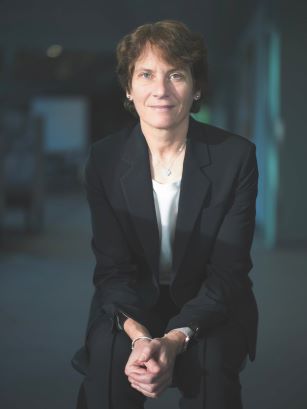Past Lecture

Stanford chemist Carolyn Bertozzi was awarded the Nobel Prize in Chemistry for her development of bioorthogonal reactions, which allow scientists to explore cells and track biological processes without disrupting the normal chemistry of the cell.
Bertozzi will present a retrospective of her remarkable contributions to chemical biology. She almost singlehandedly created the field of bioorthogonal chemistry, which is now used in the development of human biotherapeutics.
Bioorthogonal chemistry has opened new avenues for biological research and therapeutic science. Bertozzi will present the origin story of bioorthogonal chemistry as a tool for molecular imaging of cell surface glycans, advances in reaction development, and recent translational work leading to clinical drug candidates.
About Carolyn Bertozzi
Carolyn Bertozzi is the Baker Family Director of Stanford ChEM-H and the Anne T. and Robert M. Bass Professor of Humanities and Sciences in the Department of Chemistry at Stanford University. She is also an investigator of the Howard Hughes Medical Institute. Her research focuses on profiling changes in cell surface glycosylation associated with cancer, inflammation and infection, and exploiting this information for development of diagnostic and therapeutic approaches, most recently in the area of immuno-oncology. She is an elected member of the National Academy of Medicine, the National Academy of Sciences and the American Academy of Arts and Sciences. She received an honorary degree from Brown University in 2012.
Most recently she was awarded the Nobel Prize in Chemistry, Wolf Prize in Chemistry, Dr H.P. Heineken Prize for Biochemistry and Biophysics and Welch Prize in Chemistry. She also was awarded the Lemelson-MIT Prize, a MacArthur Foundation Fellowship, the Chemistry for the Future Solvay Prize, among many others.